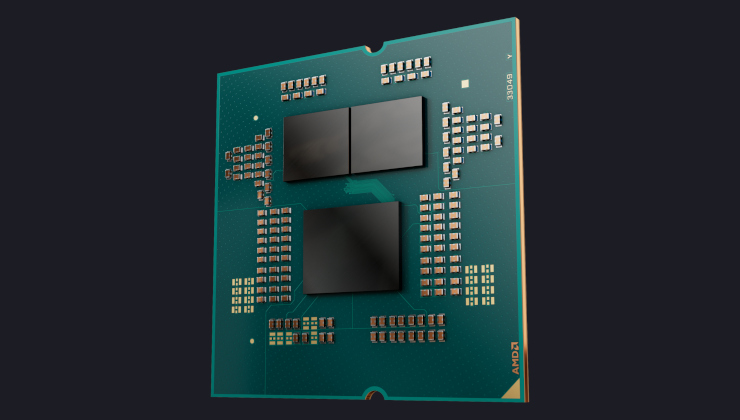
Direct Link
With all the great leaps forward which Linux gaming has made recently, it is sad to see when a step backward is made. Rather than a new game appearing on the ever-expanding library of Linux games, today it seems a game has been delayed due to the actions of a few.
The Stanley Parable was set to have a Linux port, with one of the developers working on it in his spare time, showing a positive and committed attitude towards the port which he was seemingly doing out of enjoyment. As is the norm on Steam, a series of “+1” comments and support followed with gamers eager to get their hands on this unique, story-rich, exploration/adventure game.
However, following a string of harassment from Linux users in the Steam forums (and perhaps more worryingly, in private emails), the developer has stated that he is now only working on the port in a much more limited way and has abandoned working on it in his spare time since the abuse has taken away any enjoyment he got from it. As a result, the port will take far longer than anticipated. At the same time, I fear that any 'backlash' of abusive comments could lead to all work being abandoned:
QuoteGran PC [developer]
This is exactly the case. I do like spending my free time working on games (before Stanley Parable was released, we worked on it pretty much all day!), but due to some harassment I have received regarding this subject (both on these forums and to my personal email), this port is no longer fun to work on, but more like a frustrating experience when you are trying to cater to an userbase that seems to mostly hate you. So it should come as no surprise that I am working on it only in some sort of limited 'work' time instead of pretty much all day. Sorry!
For the record, I am aware that it is just a vocal minority, but unfortunately it is hard to just shrug it off when it is actually the majority of the comments you hear about the Linux port.
Source
So it seems that the more militant wing of Linux users has put the developer off the port and tarnished his view of the community. This unfortunately not an isolated incident, and from what I have seen in on other forums, there are many out there who have begun to view Linux users as fanatics using abuse as a means to get the platform greater attention. Needless to say, this kind of behaviour by a very vocal minority threatens the progress which has been made towards making Linux a first-class citizen in the world of gaming and needs to stop.
There is no doubt that the internet has done great things in terms of giving people a voice, most of us know that it is often the voice of the uninformed and aggressive which is loudest on the web. While of course this is far from unique to Linux users, it is certainly more damaging for a user base which - already burdened by (misguided) preconceptions of being a niche market of militant power users and hackers - is trying to be taken seriously.
At the same time, this is worsened by a sense of entitlement shared by gamers across platforms whereby people feel that they can dictate to developers how and when they want their games whilst voicing outrage when things aren't exactly how they want them. While the interactivity and communication given by the internet has benefited gaming greatly in the areas of crowdsourcing and alpha-funding, in many areas it has created a climate of fear among developers. There is a thin line between the kind of animosity which prevents draconian DRM measures and the kind of animosity where developers feel that they need to increasingly pander towards gamers by changing the game to suit particular tastes in a kind of mob-rule which denies them artistic licence, forcing them to make alternate endings to games and sacrificing their vision to keep the mob satisfied.
This sense of entitlement has unfortunately seeped into the Linux world, where maybe three years ago we were ecstatic to hear that we had a bad port of an obscure indie title or finally getting an ancient relic of a game working through Wine, we now feel outrage when a game isn’t released at the same time as on other platforms or lacks some minor feature present in the Windows version of the game. In some ways this is a positive sign of how far Linux Gaming has come and our expectations along with it, but reactions such as this one to Expeditions: Conquistador lacking achievements on Linux are counter-productive and, unfortunately, commonplace:
QuoteArcanoxer
Still no Acheivements under Linux?
The Devs really don't give a shi* about the Linux port, to bad. /:
Despite providing a great port of a great game (after a little bit of a rocky start) on a platform which unfortunately still holds a tiny fraction of the overall market, rather than expressing gratitude, this user decided to make a stab at the developer (which they saw and responded to). While we know that with the advent of SteamOS and other such developments are making the future for Linux Gaming look bright, we have to understand that - from the point of view of developers - porting and making games for Linux can still seem like a daunting, time-consuming financial risk and negative responses to their efforts could put them off the platform for good (especially with small indie devs which monitor the community regularly, like those behind The Stanley Parable and Expeditions: Conquistador).
The reality is that although we are feeling the euphoria of games like XCOM: Enemy Unknown and Civilization V being ported- for now - Linux Gaming is still in quite a fragile infancy stage where any number of factors could result in it becoming a failed experiment like the Ouya, whose promise was overshadowed by a lack in decent titles and therefore market share. What happened with The Stanley Parable has demonstrated that the availability of Linux titles - and thus the success of Linux gaming as a whole - still largely depends on the existing user base and not solely on the future users which Valve has promised.
There is little the civilised majority can do in the ways of stopping this very vocal minority from acting the way they do, but we can drown them out by showing developers what the community is really like, as people did with the Aspyr Media port of Civilization V, expressing gratitude which they acknowledged and responded to positively. While it is largely down to companies like Valve to turn Linux into a credible gaming platform, it is also down to the community to ensure that this progress doesn’t go to waste by maintaining the momentum and hype they helped to create.
About
The Stanley Parable is a first person exploration game. You will play as Stanley, and you will not play as Stanley. You will follow a story, you will not follow a story. You will have a choice, you will have no choice. The game will end, the game will never end.
Quoting: Gran PCIt's a well known fact of the internet:Quoting: jdubSome devs need to realize steam forums are the worst...every steam community is balls. Taking what trolls say (and there will ALWAYS be trolls) personally is really not professional...announcing it on the forums is just setting yourself up for this.Alright then, I guess I'll have to start ignoring my email, the forums and all other channels through which the community can give me feedback.
(I don't disagree with you that the Steam forums are pretty bad in general though)
http://www.penny-arcade.com/comic/2004/03/19/
Please keep up the good work, I'd really love to see a few more endings.
I bought it because I have trusted him, I undertsand that he got annoyed by some linux users, but they don't represent me and many others, I paid for the game based on trust and didn't complain about how much time it would take him to port the game, so now if I don't see a port and therefore wasted my money, I'll just feel betrayed.
I still have hope at the moment though.
I restrict myself, I don't preorder many things, but I had the feeling that I could trust him based on his replies on steam community forum.
So, indeed, if there is no port, I should blame myself for trusting him, but in the same time no more money from me will go in his pocket. And if I really want to play his game, I'll just crack it and play it on wine.
I'm just saying there is literally no positive to buying before it's out. Even if it's someone you trust. Buy into products, not promises.
Quoting: SamsaiMy opinion is that your purchase should be a reward for the developer. That way they will get no money before it's out, which encourages them to work faster and actually create a better product. If we all went and bought the games immediately the only incentive for them to release the port is to keep their reputation up. It also has the potential of screwing up various statistics related to Linux purchases and can in some cases lead to the porting house not getting paid if the port is being done by a third party.This plus a million, I wish people would stop fecking buying games that aren't out for Linux yet.
I'm just saying there is literally no positive to buying before it's out. Even if it's someone you trust. Buy into products, not promises.
I mean, if it were based on available pateforms of the game at a certain time that wouldn't make much sense, especially because it can have several available plateforms at the same time.








 How to setup OpenMW for modern Morrowind on Linux / SteamOS and Steam Deck
How to setup OpenMW for modern Morrowind on Linux / SteamOS and Steam Deck How to install Hollow Knight: Silksong mods on Linux, SteamOS and Steam Deck
How to install Hollow Knight: Silksong mods on Linux, SteamOS and Steam Deck